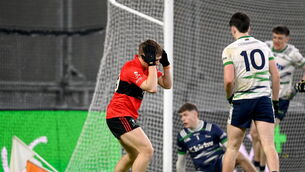GAA to cover clubs’ insurance for now

The GAA have agreed to delay the collection of insurance from clubs during the coronavirus shutdown.
Croke Park have told county boards that they will cover the cost of clubs’ premiums until such time as the precautions are lifted and the units are back up and running.










